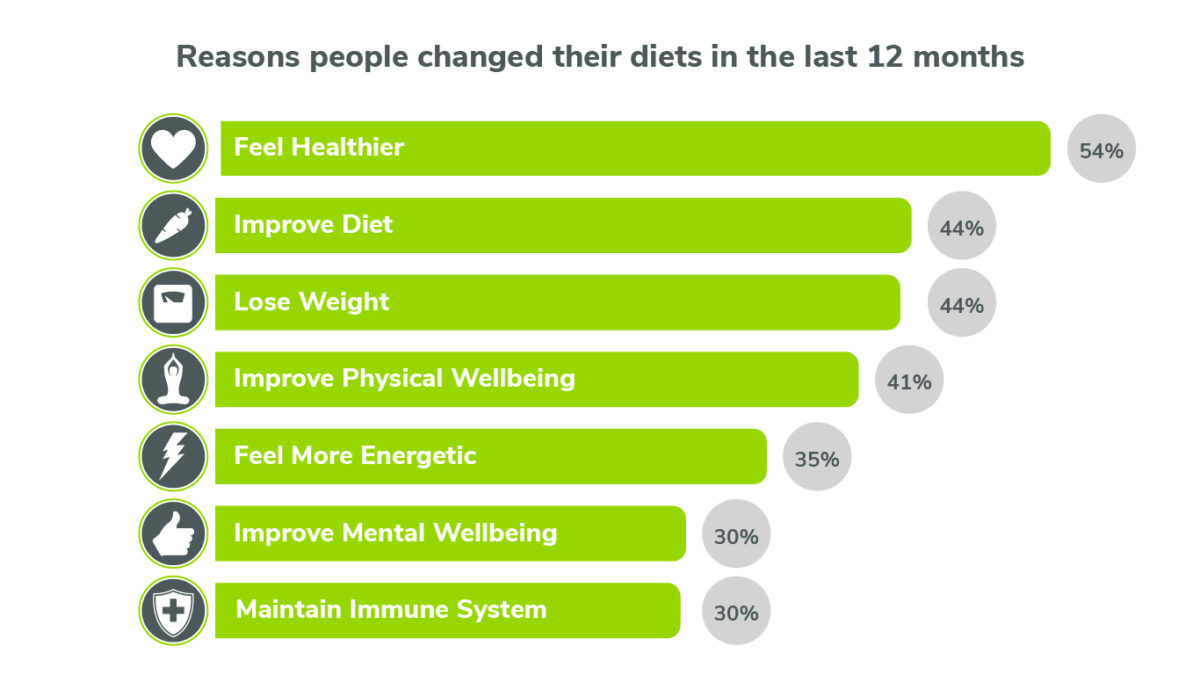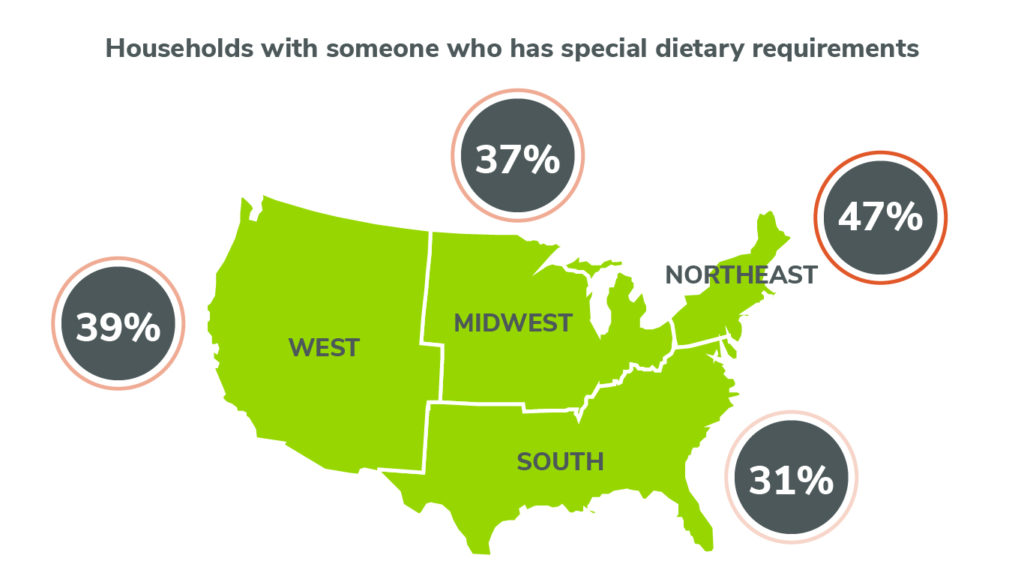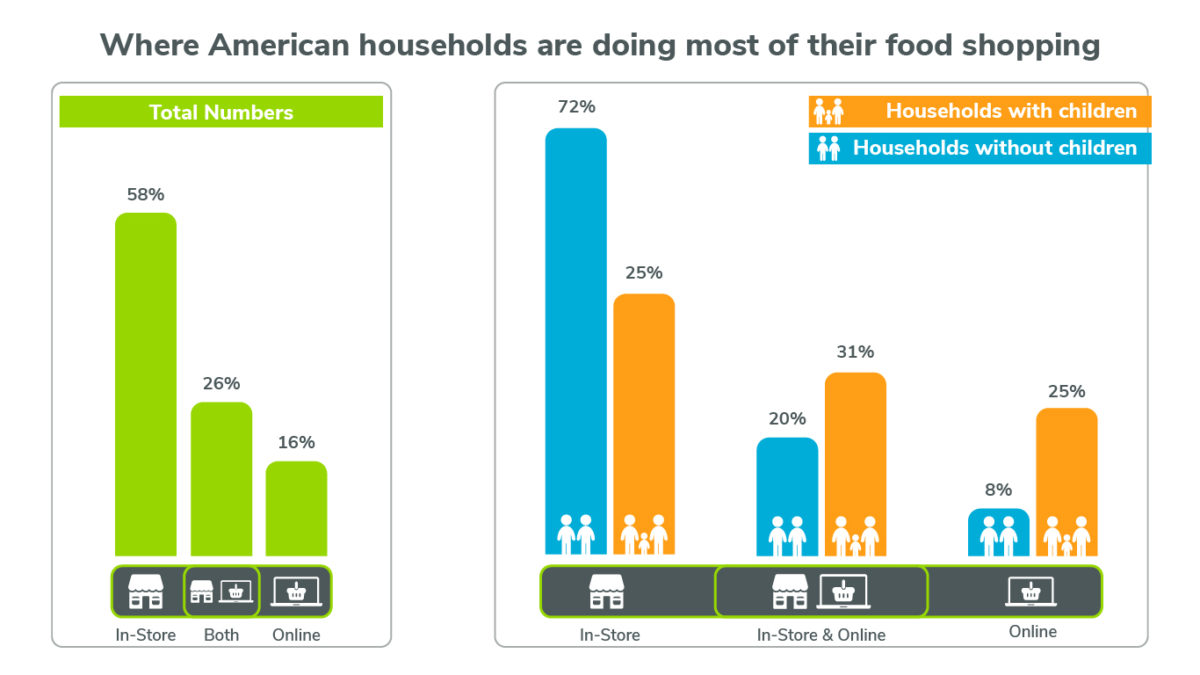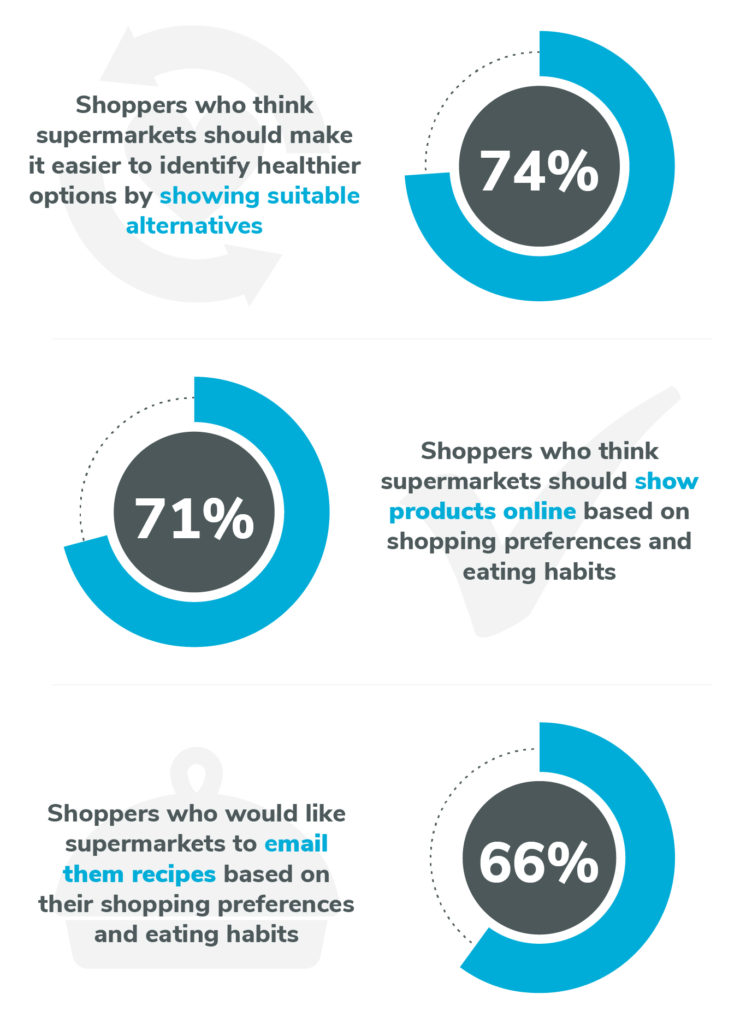- 56% of Americans have changed their diet in the last 12 months
- Over half of those (54%) did so to feel healthier
- 87% welcome the use of technology to support food discovery, including personalization, showing healthier options, and emailing preference-based recipes
- 74% said they would welcome it if supermarkets made it easier to identify healthier options by showing suitable alternatives that are lower calorie, higher in fiber, lower in sugar etc
- 71% would be happy if supermarket websites showed products that are based on their shopping preferences
January 2021: Our most recent survey of American consumers has revealed that over half (56%) have changed their diet in the last 12 months, with most (54%) making the change to try and feel healthier. This was the number one reason both men and women gave for their change in diet, accounting for 49% & 60% of responses respectively.
Other reasons given by respondents included improving their diet (44%), losing weight (44%), improving their physical wellbeing (41%), feeling more energetic (35%), and maintaining their immune system (30%). But physical health wasn’t the only reason for a change in diet, with 30% doing so to also try and improve their mental wellbeing.

The study highlighted that there is some disparity across the regions with 47% in the Northeast and only 31% in the South telling us that their households cater for somebody with a special dietary requirement. Both the West and Midwest sit in the middle of this divide with 39% & 37% of households accommodating a household member with special dietary requirements.

Of those who either have special dietary requirements themselves, or has someone in their household who does, nearly half (49%) overall told us they followed a lifestyle diet such as Vegan, High Protein, or Paleo, and 32% simply prefer healthy foods. Food Allergy and Intolerance remains a high concern, with 40% needing to omit foods from their diet for this reason. Those following diets based on their personal sense of ethics also factored, with religious diets accounting for 14% of responses, and 10% adjusting their diets for reasons around environmental sustainability.
When we broke this down regionally, we found that lifestyle diets remained the number one dietary category across the country, with the exception of the Midwest. While Lifestyle diets were highest in the Northeast (55%), it was Allergies and Intolerances that most in the Midwest had to be aware of for 50% of respondents with specialised diets in that area.
The Northeast also topped the nation for Religious diets such as Kosher or Halal (20%), and on average a third (32%) of those on special diets had a preference for healthy food across the country. While eating sustainability-focussed diets was a priority for 13% in the Northeast and West, this was less so for those in the Midwest and South at 7% and 8% respectively.

Families with children most likely to shop online
Over half of consumers are still primarily shopping in-store (58%), however a quarter (26%) now buy their groceries both online and in-store, and 16% are shopping almost exclusively online. We found that it’s households with children that are most likely to buy groceries online, with 25% choosing this option in contrast to only 8% of households without children opting for the same. This suggests that retailers can particularly help families with children by providing a smooth omnichannel experience across their in-store and online shopping spaces.

Technology to the rescue
Technology has emerged as an essential tool for many, with a massive 87% reporting that the role of technology in helping them to find the right foods when they need it, has been either extremely important or somewhat important to them.

This gives retailers a unique opportunity to help their customers, and this is something that we found many shoppers would be happy to see. When asked about what type of personalization initiatives they would like from supermarkets, nearly three quarters (74%) told us that they would welcome it if supermarkets made it easier to identify healthier options by showing suitable alternatives that are lower calorie, higher in fiber, lower in sugar etc, 71% would be happy if supermarket websites showed products that are based on their shopping preferences, and two thirds (66%) would be ok with supermarkets emailing them recipes that are based on their shopping preferences and eating habits.
* our online survey of 1001 adults from the USA took place between 19 – 20 Jan, 2021
